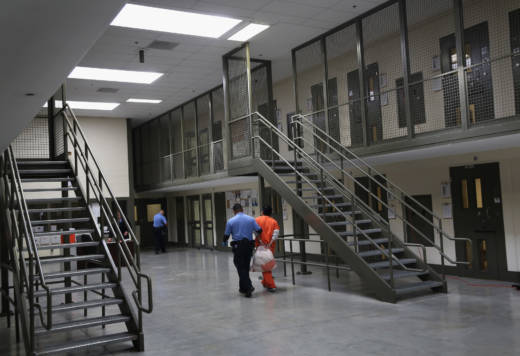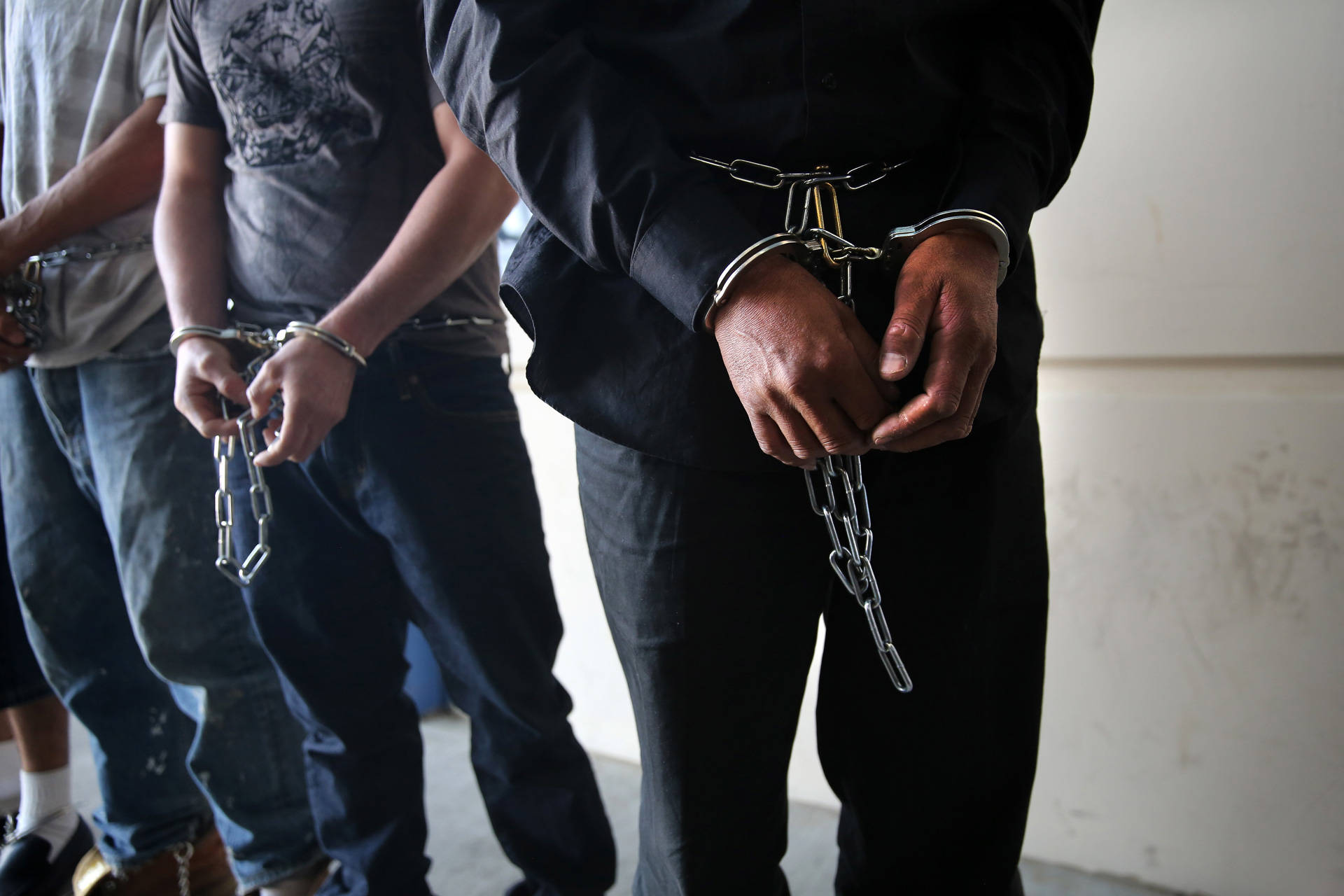The men filed a complaint with the Department of Homeland Security's Office for Civil Rights and Civil Liberties alleging that they were beaten and denied medical care and access to their attorneys.
GEO Group, the private prison company that owns and operates the facility, is investigating the incident, and ICE officials will review that probe, according to Kice.
"The claim the men involved in this disturbance were beaten is a gross and regrettable exaggeration," wrote Kice in an email.
On June 14, a group of nearly 30 women refused to eat for about 24 hours -- asking for medical care, "basic respect" from jail guards, lower bond rates and to be reunited with their families. Call said that they ended the strike after many of the women received medical care on June 15.
Then, on June 22, eight of the same men from the June 12 action began a new hunger strike, after one was deported. Call said that detainees throughout the facility have refused food periodically since they began striking on June 12.
Kice says that the agency will implement hunger strike protocols, including medical supervision, if detainees refuse food for more than 72 hours.
Ongoing Problems with Medical Care
While the city of Adelanto holds the contract with ICE to detain immigrants in the facility, the city also has a contract with GEO Group to run it. Early last year, GEO Group stopped providing its own medical care and subcontracted with Correct Care Solutions, keeping on many of the same staff.
ICE’s own investigators found problems at the facility, including health care delays, poor record keeping and failures to properly report sexual assaults.
In a federal investigation into one of the California deaths, inspectors noted that the person who died had waited more than a year to see a specialist, that the high turnover of medical staff led to inadequate care and that a dearth of laboratory services led to delays in treatment.
Independent medical experts for Human Rights Watch analyzing ICE’s investigation found that the man probably suffered from symptoms of cancer for two years.
Long Stays in Detention
Detainees are also requesting to be released on their own recognizance, on bond or to receive a monitoring device.
Immigrant detainees, including asylum-seekers, can wait weeks, months and even years for their day in immigration court. There are currently 326 immigration judges nationwide — and they’re handling nearly 600,000 pending cases, according to the Department of Justice and data from Syracuse University’s TRAC research center. Even if the immigration courts didn’t accept a single additional case, it would take longer than two years to go through the backlog, according to TRAC.
Both ICE and immigration judges can release people. ICE officers make an initial determination about whether people should be detained while their immigration cases are pending.
"ICE makes such determinations on an individual basis taking into account all facets of the person's situation, including the individual's immigration history and criminal record, if applicable. Likewise, the agency also considers an alien's family ties, any humanitarian issues that may be involved, and whether the person is a potential flight risk," wrote Kice.
Detainees who have been convicted of criminal activity are mandatorily held in detention.
Currently, the U.S. Supreme Court is set to rehear a case that could require immigration courts to conduct bond hearings every six months. The named plaintiff in the case, Alejandro Rodriguez, spent three years in ICE detention without a hearing for his release.
Court records analyzed by TRAC showed that at least half -- and in some years upward of two-thirds -- of people are held in ICE detention while the DHS begins court proceedings to deport them. The median immigration bond was set at $8,000 in fiscal year 2016. About one in five people granted bond stayed in detention, presumably because they can't afford it.
In a statement during the first hunger strike, the men wrote that they cannot afford bail:
"We are from El Salvador, Honduras, and Guatemala. We ask for your attention, because Adelanto is one of the prisons which exists for those who are seeking political asylum, and in reality our records are clean, none of us have prior criminal records. The bail is set impossibly high, and it’s a humiliating joke because we are poor, we don’t have that kind of money."

